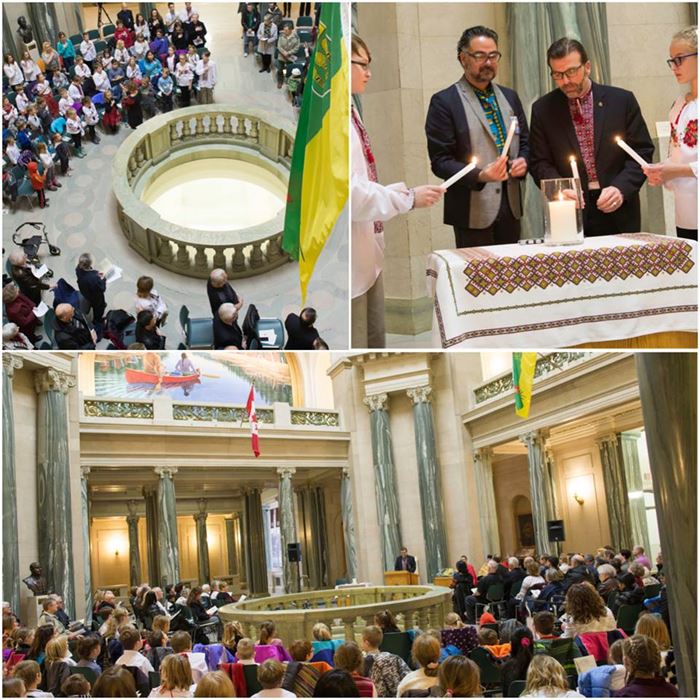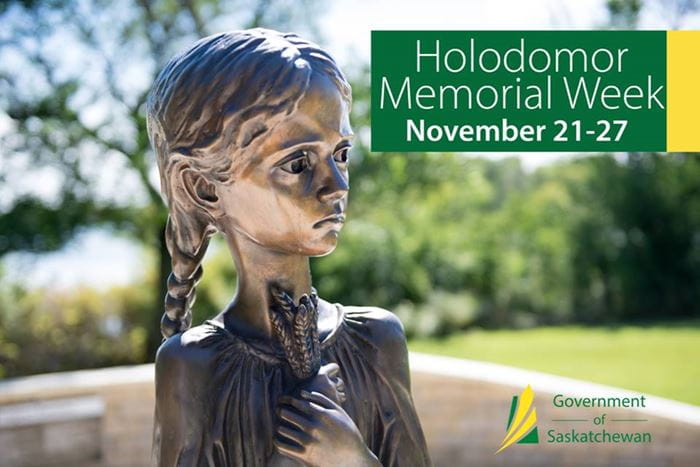Released on November 21, 2016
Holodomor Means “Extermination by Hunger” in UkrainianToday the Minister Responsible for Saskatchewan-Ukraine Relations Greg Ottenbreit joined with members of the local Ukrainian community at the Saskatchewan Legislative Building to remember the millions who died during Holodomor, a genocide inflicted through starvation in Ukraine in the 1930s.
“One cannot begin to imagine the devastation experienced by the Ukrainian people as a result of Holodomor,” Ottenbreit said. “Today we remember those who were lost and honour those who survived and built thriving communities in our province and around the world.”

The service included a symbolic candle lighting. The memorial candle, located in the Rotunda of the Saskatchewan Legislative Building, will remain lit for the week to show solidarity with people around the world who are taking time to remember.
A wreath will rest at the “Bitter Memories of Childhood” Holodomor statue, which is east of the Legislative Building along Lakeshore Drive. The bronze statue, dedicated in 2015, is an exact replica of the original that stands near the entrance of the National Holodomor Museum in Kyiv, Ukraine. It is of a young peasant girl holding a wheat sheaf as a tear runs down her cheek. The monument serves as a lasting reminder of the famine’s devastation and its impact on children.
Under Soviet dictator Joseph Stalin’s communist regime, up to 10 million Ukrainians were killed during the genocide. Despite substantial grain harvests during 1932 and 1933, crops were confiscated with Stalin’s regime imposing a man-made famine and preventing Ukrainians from leaving their communities in search of food.
Holodomor Memorial Week runs from November 21 to 27. Saturday, November 26, will mark International Holodomor Memorial Day.

The Legislative Assembly of Saskatchewan was the first jurisdiction in North America to recognize this genocide with the passing of The Ukrainian Famine and Genocide (Holodomor) Memorial Day Act in 2008.
-30-
For more information, contact:
Dauna Ditson
Intergovernmental Affairs
Regina
Phone: 306-787-2155
Email: dauna.ditson@gov.sk.ca
